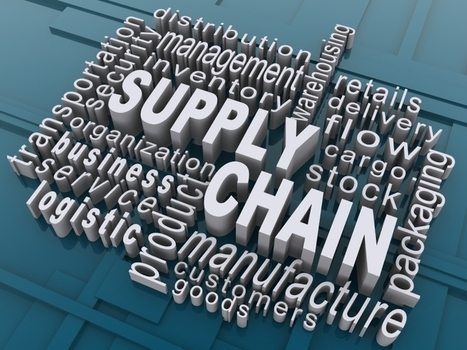The UK automotive industry is back on track after years of decline, with many pointing to the important role it plays in improving the economy. According to the Society of Motor Manufacturers and Traders (SMMT)[1] UK car plants last year produced more than 1.5 million vehicles, the highest number since 2007. By 2017 that number is expected to rise to more than two million vehicles per annum.
One of the factors underpinning the increase in UK automotive production has been the decision by car makers to re-shore many of the processes that have been systematically transferred overseas over the past couple of decades. The perceived economic benefits of off-shoring have all but eroded due to an increase in material and labour costs across the emerging nations as they reach first-world maturity. There is also – not just in automotive but across a variety of industries from fashion to technology – an increased demand from end users to see a ‘Made in Britain’ label on the products they buy.
A major report from manufacturers’ association EEF found[2] that one in six UK manufacturing companies has re-shored production in the past three years, up from one in seven when a similar study was carried out in 2009. The survey found that cost was but one driving factor, and was in fact eclipsed by the desire to improve quality, create shorter, more responsive supply chains and streamline communication with customers.
In the automotive industry the numbers are even stronger. According to research from Lloyds bank[3], almost half of the companies it questioned, including household names like Jaguar Land Rover as well as many smaller automotive manufacturers, said they had already re-shored 20 per cent of their business and of those planning to come back to the UK, close to 30 per cent said all of their production would soon be undertaken within these shores.
The overall benefits to the economy of re-shoring are significant. Only around one third of the components in a UK-built vehicle are sourced in the UK at present, around half of the 60 per cent seen in other European countries such as France, Germany, Italy and Spain. A new report by the Automotive Council[4] – a collaboration between the Department for Business, Innovation and Skills (BIS) and The Society of Motor Manufacturers and Traders Limited (SMMT) – evaluated the potential for increased UK based sourcing in the upstream supply chain to counter this and predicted that it could lead to a substantial £2bn per annum boost to the economy.
Currently, the single largest imported component of the supply chain by value is the electronic systems themselves, where UK sourcing is very limited. Central, therefore, to the success in re-shoring the UK automotive industry will be the ability to source more technology and expertise from within. Yet, that in itself could be problematic, as the technology required by the automotive sector is undergoing a radical transformation and becoming increasingly complex to deal with this generation of consumer’s demand for ‘connected cars’ accelerating this change.
The quality assurance and testing approach undertaken by an increasingly re-shored automotive industry is going to be critical. Here at SQS, we have been helping a large automotive group boost their software performance throughout the supply chain to enable them to produce the next generation of connected car. Our experience has taught us that seamlessly embedding quality assurance into the way a company plans, delivers and supports their software systems is the first step towards achieving more, achieving it better, in less time and for less cost.
Overall, whilst the trend for the UK automotive industry to re-shore a number of its processes is incredibly encouraging, it must remain mindful of the quality assurance and testing needed as the manufacturing process centred in the UK becomes more complex. If done correctly, it will keep the ‘Made in Britain’ label makers in business for years to come.
- The Society of Motor Manufacturers and Traders, 2014
- EEF, March 2015
- Lloyds Bank, December 2014
- Automotive Council, November 2014
[su_box title=”Dr. Martyn Jeffries, Head of Automotive Solutions at SQS” style=”noise” box_color=”#336588″]
The SQS Group (SQS) is the world’s leading specialist in software quality. This position stems from over 30 years of successful consultancy operations. SQS consultants provide solutions for all aspects of quality throughout the whole software product lifecycle driven by a standardised methodology, high offshore automation processes and deep domain knowledge in various industries. Headquartered in Cologne, Germany, the company employs approximately 4,000 staff. SQS has offices in Germany, the UK, Australia, Austria, Belgium, Egypt, Finland, France, India, Ireland, Malaysia, the Netherlands, Norway, Singapore, South Africa, Sweden, Switzerland, the US and the United Arab Emirates. In addition, SQS maintains a minority stake in a company in Portugal. In 2013, SQS generated revenues of 225.8 million Euros. SQS is the first German company to have a primary listing on the AIM (Alternative Investment Market) in London. In addition, SQS shares are also traded on the German Stock Exchange in Frankfurt am Main.
With over 7,000 completed projects under its belt, SQS has a strong client base, including half of the DAX 30, nearly a third of the STOXX 50 and 20 per cent of the FTSE 100 companies. These include, among others, Allianz, Beazley, BP, Centrica, Commerzbank, Daimler, Deutsche Post, Generali, JP Morgan, Meteor, Reuters, UBS and Volkswagen as well as other companies from the six key industries of SQS.[/su_box]
The opinions expressed in this post belongs to the individual contributors and do not necessarily reflect the views of Information Security Buzz.



